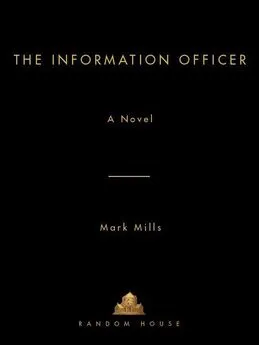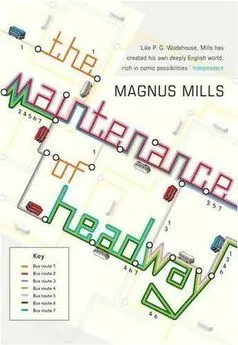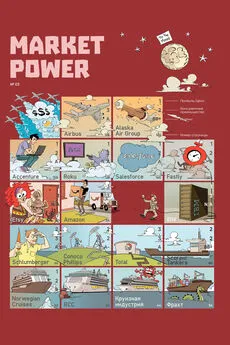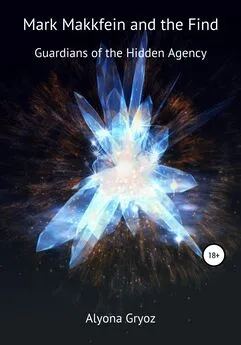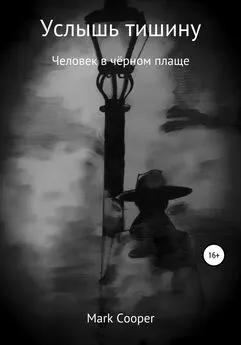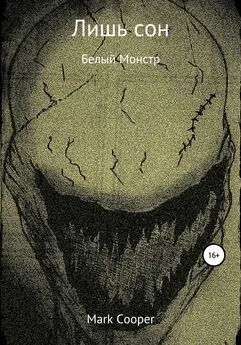Mark Mills - Amagansett
- Название:Amagansett
- Автор:
- Жанр:
- Издательство:неизвестно
- Год:неизвестен
- ISBN:нет данных
- Рейтинг:
- Избранное:Добавить в избранное
-
Отзывы:
-
Ваша оценка:
Mark Mills - Amagansett краткое содержание
Amagansett - читать онлайн бесплатно ознакомительный отрывок
Интервал:
Закладка:
‘So you should be,’ he said, ‘stealing off the dead.’
‘A pair of damn earrings. What the hell does she care?’
‘What if it was your sister?’ fired back Conrad.
It took a moment for Dan Geary to register that Charlie’s sister also happened to be his own wife, but once the thought had lodged itself in his brain it appeared to bother him. He looked at his brother-in-law uncertainly.
‘What?’ snapped Charlie.
‘Nothing, Charlie.’
‘Good, ‘cos it’s time we taught this foreigner some goddamn manners.’
Charlie Walsh wasn’t flame-headed like his father, but he still had the fire in him. Conrad could see it sparking in his eyes as he turned back, balling his fists. Conrad could remember his father telling him once in his labored English: ‘You just got to get an Irish down ‘n’ beat shit out of him, then he’s the best friend you got.’
Even if they ganged him, as they clearly planned on doing, Conrad stood a fair chance of putting Charlie Walsh down, but he seriously doubted they’d ever become friends because of it. No, he set more store by the other piece of advice his father had offered up at the same time, much to the consternation of his stepmother. If you’re ever outnumbered in a fight, he had said, keep your eyes on one man, but be sure to land your first punch on another.
And this is what Conrad did.
His eyes never left Charlie’s, but the punch, when it came, was a scything right across the body that caught Dan Geary square in the face, crumpling his nose and stopping him dead in his tracks. Conrad didn’t wait to see him hit the ground, he was already spinning back, shifting the weight to his left foot, swinging his right arm as he did so.
Caught off-guard, Charlie wasn’t set when the forearm struck him in the head, knocking him sideways. He probably would have kept his footing if Conrad hadn’t piledrived a knee into his hip a split-second later. Charlie snatched at Conrad as he fell, seizing hold of his shirt. Conrad pulled free, but he was off balance, his back now turned to Ellis. In two strides, Ellis was in range.
The boot caught Conrad in the side of the chest just below the ribcage and he heard something crack. He raised his arms protectively in front of his face as he doubled up and the second kick glanced off his elbow. He tried to back away, but Charlie was hauling at his trouser legs now, doing his best to bring him down. From here, things quickly degenerated into a close-quarters dogfight—fists flailing, fingers clawing at faces and snatching at hair. There were a few small satisfactions—at one moment his elbow met Charlie’s mouth, splitting the lip clean open and dislodging some teeth—but Conrad started to wilt under the hail of blows. A few moments later he found himself brought to the ground, the side of his face impacting with the crushed oyster shells.
Charlie took a step back, setting himself for a swing of his boot. It was clearly intended for Conrad’s head and there was nothing he could do to avoid it; Ellis was all over him, pinning his arms. He closed his eyes in anticipation of the searing white pain and the black void of unconsciousness.
But they never came.
He heard a sound like a sack of grain being dropped from a trailer, and opened his eyes in time to see Charlie collide with a truck, another man wrapped around him.
It was Rollo. Conrad had never seen him so mad. In fact, he’d never once seen Rollo mad. Mute with frustration on a couple of occasions, maybe, but never like this, possessed by rage. He was screaming, pummeling Charlie with his fists.
If it had been a less shocking sight, Conrad might have been the first to react. As it was, Ellis had the edge. Conrad lunged at his leg but missed, looking on helplessly as Ellis snatched a length of two-by-four from the back of a truck.
‘Rollo!’ cried Conrad.
Rollo turned, saw the piece of lumber raised high above Ellis’ shoulder, and he froze.
‘No!’ It was Charlie Walsh who screamed, blood spraying from his mangled mouth. ‘Don’t!’ He extended his arm to ward off the blow, and Ellis truncated his swing at the last moment. Despite the heat of the fight, Charlie knew better than to strike a Kemp, especially Rollo. There would be the devil to pay.
Conrad was on his feet now, moving to be with Rollo. Charlie and Ellis backed off warily, helping Dan to his feet as they left. For the duration of the scuffle he’d been sitting on his ass, staring perplexedly at the blood sluicing from his nose into his open hands.
Charlie Walsh gunned the engine of his truck, the tires spitting shards of shell before biting on the packed sand beneath. He didn’t even glance over as he roared out of the lot.
Rollo watched the taillights disappear into the night. ‘He’s a hard-shell sinner, that one.’
Conrad laughed, then winced from the pain.
Despite Rollo’s protestations, Conrad insisted on returning home. He knew he had fractured a rib, possibly two, but it wasn’t as if it was the first time. Doc Meadows—in his inimitable, cranky way—would only strap him up, tell him to take it easy and maybe give him some aspirin to dull the pain. The first of these Conrad was quite capable of doing himself, the second was out of the question, the third he had no desire for.
He wanted to feel the stab of pain in his side, he wanted it to endure, to aggravate him as he went about his day, to wake him at night each time he rolled over in bed. It would act both as a nagging reminder of what had occurred and as a call to arms.
Already he could feel a clarity of thought descending on him, a determination as clean and hard as the steel of a new blade.
Leaving the parking lot, he found himself swinging the wheel of the truck to the left, heading east on Cranberry Hole Road. Home was to the west.
The handful of rundown shanties clustered on the western shore of Napeague Harbor where it opened to the bay was dubbed Lazy Point by the locals. There was indeed an air of languor about the residents who scratched a living from the surrounding beaches, bars and flats. But when they sold their services to others—shucking scallops, skinning eels or baiting cod trawls with skimmer clams in winter for the ocean crews—they worked with impressive speed and dexterity.
When it came to it, Lazy Point was so called because of its appearance. Aside from a few straggly hedgerow weeds there was hardly a flower to be seen in the place. Instead, the front gardens of the houses were cluttered with fishing paraphernalia, most of it well beyond use, or even repair. Ancient lobster pots lay abandoned in heaps, woven through with tall grasses. Small rowboats were propped up on logs, their rotten timbers destined never to be replaced. Out front of one house there was even a rusting horse-drawn hay rake, a relic from the last century when the nearby salt meadows were cropped for winter grazing.
As for the buildings themselves, not one was painted the white or cream of their counterparts in Amagansett. At best, they received an annual baptism of bunker oil to protect their rough, salt-bleached cladding. They were low, ramshackle structures, some cobbled together from the old sugar boxes once used for shipping fish. Come a hard winter blow, large sections would detach themselves and take wing, only to be located the next day and bolted right back on again. Like an old garment fondly preserved with patches, these humble dwellings were unsightly to all but their owners.
In amongst the dilapidation, one home stood out like a pink ribbon on a sow’s ear—a neat little weatherboard shack with a shingled roof, set back from the road down a rutted track. And it was in front of this building that Conrad pulled the truck to a halt.
He hesitated, allowing the engine to idle, suddenly doubting his decision to come here. He would have pulled away again if Sam Ockham hadn’t opened the front door of his home, raising one hand to shield his eyes from the glare of the truck’s headlight. His other hand was clamped around the collar of his dog, restraining it.
Conrad killed the engine. ‘It’s me, Conrad,’ he called, stepping down from the truck.
‘Bed,’ snapped Sam, and his dog scuttled back inside. ‘You near scared hell outta me.’
‘I thought you didn’t believe in hell.’
‘Are you crazy? I live it most days.’
Conrad smiled, stepping into the swathe of light thrown by the kerosene lamps inside.
Sam squinted at him. ‘You been brawlin’?’
‘I guess.’
‘Get yourself in here. I’ll fix you something to stop that eye closing up.’
‘Forget it, it’s okay.’
‘Easy for you to say, you don’t got to look at you.’
Half an hour later Conrad was sitting in a chair, a compress strapped to his eye, the pad smeared with some pulpy substance concocted by Sam from the strange herbs and weeds he always had to hand.
Conrad glanced around the single-room shack while Sam clattered away in the corner, clearing up the residue of his preparations, always clearing up. Little had changed in all the years Conrad had known the place. The old double-barreled ten-gauge with the rabbit-ear hammers still hung above the mantel on pegs, loaded, ready for action. The surface of the pine table was, as ever, scrubbed white with wood ash lye, clean enough for a surgical operation, the chairs neatly tucked in around it. A curtain embroidered by Sam’s wife just before her death shielded the sleeping area with its iron bed from the main body of the room.
The only notable additions in the past two decades were a good-quality battery radio set and a framed photo of Billy in military uniform, both on the side table next to the old captain’s chair where Sam spent a good deal of his time. Taken by some backstreet photographer in Manila, the grainy image had been posted home by Billy, along with a letter. They had arrived at Lazy Point, the letter partially censored, two weeks after the Western Union telegram announcing Billy’s death in combat.
Sam shuffled over with two glasses of clear liquid and thrust one into Conrad’s hand. ‘Potato grog. One of my best yet.’
It burned a streak down Conrad’s gullet. Sam lowered himself into his chair and set about packing his pipe.
‘How’s the hip?’ asked Conrad.
‘Better this time of year, I can stir around more, do a little net fishing. Sand dabs is running strong right now.’ Sam looked up. ‘If you knows where to look,’ he added mischievously.
Conrad stared at his old friend and felt an overwhelming sense of sadness: alone in the world, his wife and son gone, his body failing him, clinging to what little dignity his circumstances allowed him. He knew Sam was having difficulty making the payments on his lease to the Town Trustees, that there was talk of moving him out of the house.
As he lit the pipe, Sam glanced up, his drawn eyes reading Conrad’s look. ‘It ain’t so bad,’ he said.
‘I can help.’
‘I don’t want no charity from any man.’
‘I’m not just any man.’
Sam hesitated. ‘No.’
‘I’ll see you good with the Trustees till spring.’
‘Can’t do it.’
Conrad’s lone eye flicked over to the photo of Billy on the side table, drawing Sam’s gaze with it. ‘That last summer he fished on shares with my father,’ said Conrad. ‘You remember? Couldn’t put an oar in the water without striking a bluefish.’
Sam smiled. ‘Yeah, Billy done real good that year.’
‘Should have done a whole lot better.’
Sam looked at him long and hard, drawing on his pipe. He exhaled slowly. ‘It’s a fool bends a dead man’s name to his own ends, good or bad—a ten-fold fool if that man’s his father.’
Читать дальшеИнтервал:
Закладка:

